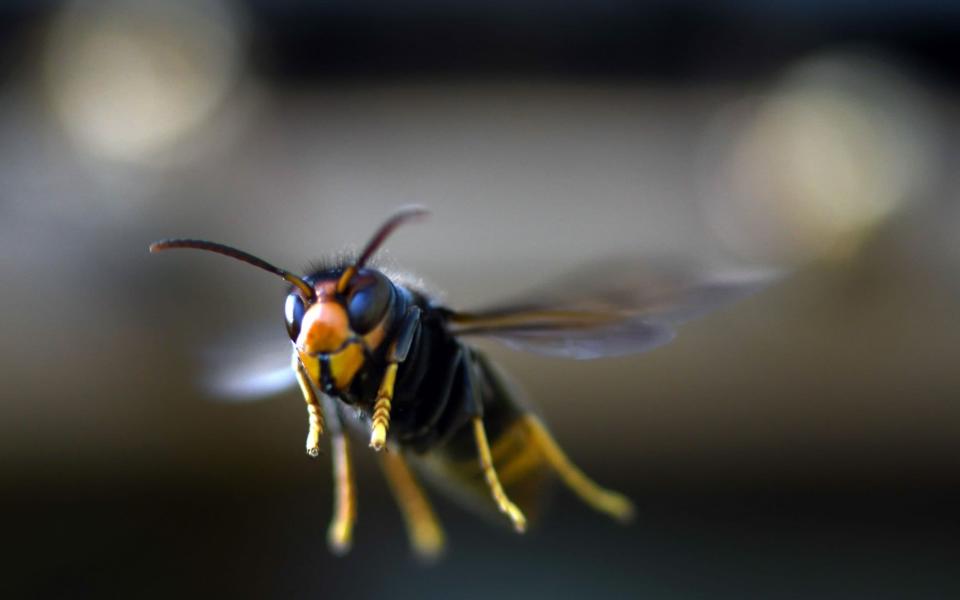US bracing for invasion of monster hornets
The US is facing an invasion of giant Asian hornets that scientists fear could threaten its bee population.
The monster hornets – nicknamed "murder hornets" by researchers in the northwestern state of Washington – were first spotted late last year near Blaine, a town near the Canadian border.
Known as the Vespa Mandarinia, the hornet is two inches long and is capable of stinging several times, which can prove fatal.

It is estimated that they kill around 50 people a year in Japan alone.
The hornets' stingers are so long that they can penetrate beekeepers' protective suits.
Their toxic venom is equivalent to that of a poisonous snake, according to Jun-ichi Takahashi, a researcher at Kyoto Sangyo University in Japan.
In all four hornet colonies were found in Washington and two more were discovered in British Columbia.
The tell-tale sign was piles of dead bees with their heads ripped off.
Just a handful of hornets can destroy a beehive in a matter of hours, according to Washington's department of agriculture.
Having decapitated the bees during what is known as their "slaughter phase" the hornets then take control of the hive.
They then use the bodies of the bees to feed their young.
"It's a shockingly large hornet," said Todd Murray, an entomologist at Washington State University.
"It's a health hazard, and more importantly, a significant predator of honeybees," he added.
"They're like something out of a monster cartoon with this huge yellow-orange face," said Susan Cobey, a bee breeder with Washington State University's Department of Entomology.
The hornets' natural habitat is the forests and mountains of eastern and southeast Asia, where it has already devastated the local population of the European honeybee.
How they arrived in North America remains unclear. One theory is that they might have been inadvertently transported in international cargo.
Washington's department of agriculture has issued a chilling warning to local residents, telling them to use extreme caution should they come across a colony, even though they do not normally attack people or pets unless they feel threatened.
"Anyone who is allergic to bee or wasp stings should never approach an Asian giant hornet," it said.
"Don't try to take them out yourself if you see them," added Chris Looney, another state of Washington entomologist.
"If you get into them, run away, then call us! It is really important for us to know of every sighting, if we're going to have any hope of eradication."


